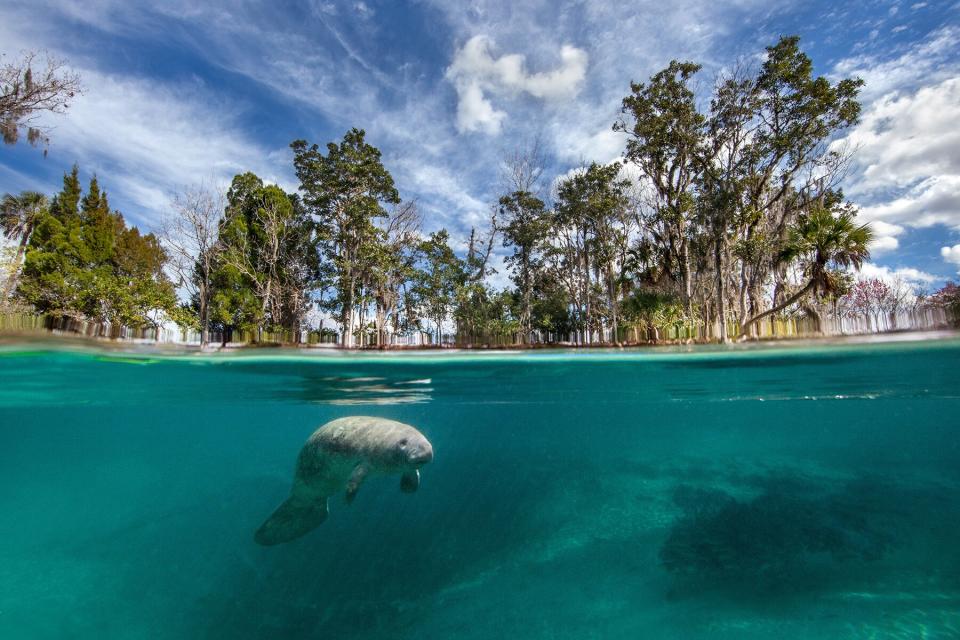Florida's Manatees Are Dying at Record Rates — Here's How You Can Help
Florida's beloved manatees are in grave danger.
According to a report by the Florida Fish and Wildlife Conservation Commission, an estimated 1,000 manatees are expected to die this year. As of September, that number had already hit more than 900.
This number, The Independent Florida Alligator reported, marks the highest number of manatee deaths in a single year since 2013.
Why is this happening? As WTXL explained, many of Florida's manatees live in the waters of the Indian River Lagoon near Palm Bay, which experienced a large algae bloom last winter, preventing seagrass from growing in the area, which is the main food source for the aquatic animal.
"The seagrasses have not rebounded at this point. It's going to take a few years of good water quality before they'll bounce back," Chuck Jacoby, St. John's River Water Management District supervising environmental scientist, told WTXL.
This seagrass die off isn't just bad for the manatees, but could potentially be bad for nearby homeowners, too.
"They provide...protection against storm surge for the human-built environment," Jim Fourqurean, a professor at Florida International University, said. "These are the most valuable systems on Earth."
And this isn't the only problem for manatees. According to Michael Walsh, a University of Florida veterinary medicine professor who spoke with The Independent Florida Alligator, many of the state's manatees are now living near power plants that produce artificial heat. The animals are staying here for warmth, however, there is very little food source around due to the poor water quality, causing them to starve.

Ai Angel Gentel/Getty Images
"When it gets to the point where [the manatees] have to make a choice now between where can I go for food versus staying warm ... a lot of them choose to stay warm because they don't know where else to go," Walsh said. "They haven't done the migration that would've happened generations ago like their grandparents did or their great grandparents."
And there's one last issue: humans.
According to Ally Greco, a Save the Manatee Club spokesperson who spoke with The Independent, more than 80 manatees died in 2021 due to preventable boat collisions with humans.
"If you're out on the water, obey the posted speed zones," Greco said. "They're naturally kind of slow-moving creatures because they don't hunt anything, and they're not prey for anything."
So, what can be done to save them? WTXL notes several options are on the table, including everything from seagrass restoration to feeding the manatees, and even bringing them into conservation programs and zoos for the time being.
"We're looking at our capacity, what our pools can hold, what our filtration can do to make sure we can help in every way we can. We know that we're going to have to take on more manatees this winter," said Tiffany Burns, the director of conservation, research, and behavior at ZooTampa, shared with WTXL. "I mean, we would do anything that we needed to save these animals."
See more about how you can help on Save the Mantee's website and learn what to do if you see them during their fall migration.

